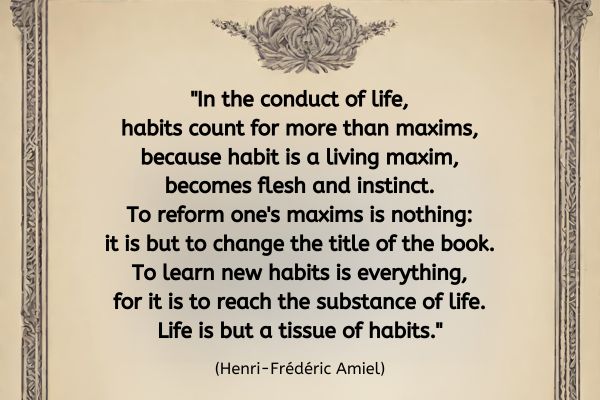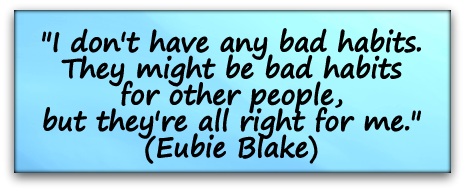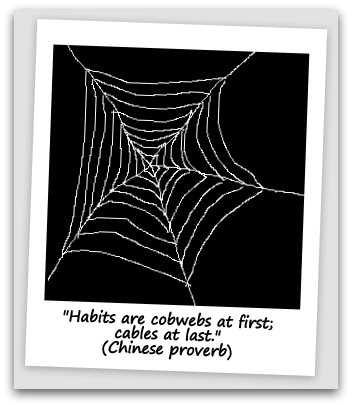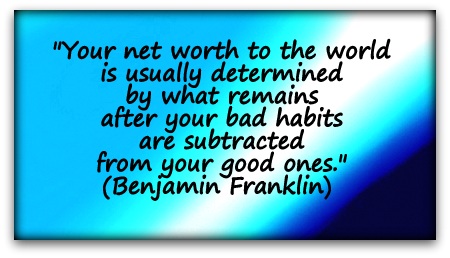Cultivating a Tapestry of Change: The Power of Habits in Coaching

Todays quote is:
“In the conduct of life, habits count for more than maxims, because habit is a living maxim, becomes flesh and instinct. To reform one’s maxims is nothing: it is but to change the title of the book. To learn new habits is everything, for it is to reach the substance of life. Life is but a tissue of habits.” (Henri-Frédéric Amiel)
As we gracefully navigate the third week of 2024, it’s an opportune moment to reflect on the dance between resolutions and the formidable force of habits. Henri-Frédéric Amiel, a profound philosopher, invites us to ponder the significance of habits in the intricate conduct of life. Let’s unravel the threads of this quote and weave a narrative of continuous growth and transformation.
The Unraveling of Resolutions and the Emergence of Habits:
New Year’s resolutions often embark on our journeys with grand intentions, but as the days slip by, so can our resolutions. How many have found themselves in this familiar terrain? The allure of change lies not in reforming maxims like changing a book title but in the intricate dance of cultivating new habits. Every day is an opportunity for that to happen, not just the first of the year.
A Continuous Journey of Learning and Growth:
As coaches, we witness the ebb and flow of motivation in our clients. The initial surge can often encounters stumbling blocks perhaps as the novelty fades. One secret is in recognizing that it’s never too late. Each day presents a new canvas to paint the strokes of improvement and change. What habits are your clients striving to learn? Do you guide them through the journey of habit formation?
From our perspectives as coaches – what habis do you have as a coach? I know there’s certain things I always do at the start of a coaching session – initially out of habit but I found that they actually help to draw my clients focus into our conversation, particularly if they’ve arrived to our call in a flustered state. So now, its something that I do as a conscious choice. What about you? Do you have any coaching habits and if so have you consciously chosen to keep those habits?
Resilience Beyond Resolution:
Resolutions may slip through our fingers, but the journey to instill new habits endures. The significance lies not in the speed of change but in the commitment to shaping a life adorned with purposeful habits. Every habit formed, no matter when, contributes to the beautiful tapestry of one’s life.
Navigating Client Challenges:
As coaches, do you observe specific points where clients stumble after their initial surge of motivation? How do you address these challenges and guide them back onto the path of habit formation? Share your insights and strategies in the comments below.
In the grand tapestry of life, habits weave the threads that form the substance of our existence. Embrace each day as an opportunity to learn, grow, and cultivate habits that resonate with the life you envision. Feel free to share your thoughts in the coment section below.
About Jen Waller

Jen Waller is on a mission to support, nurture and encourage coaching skills and talents from non-coach to coach and beyond.
As an experienced coach and trainer Jen is happy to utilise all skills at her disposal to assist clients from getting out of their own way and making a difference in the world with their coaching. Find out more about the support Jen offers here.


